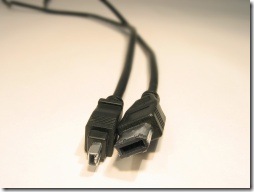eBay fraud is rampant in Romania, Russia and China. In fact, eBay says that the majority of all eBay phishing emails comes from these countries.
Mark Lee is the trust and safety manager for eBay UK and he’s made the following comments:
- “[there’s] no fear of real punishment [in these countries]”
- “These attacks are definitely organised”
- “There are towns in Romania where the entire focus is on sites like eBay as the main source of income”
There have been several hundred arrests in Romania after eBay initiated a campaign to stop fraud, in June 2007. But this hasn’t stopped them and it’s still rampant in these parts.
Techniques used by these criminals include asking eBay shoppers for personal details (when people bid or ask questions on the site) – this is known as phishing and the personal details are later used to commit other crimes.
If you use eBay to buy or sell goods have a read here [ http://pages.ebay.com/securitycenter/ ] for tips and tutorials on eBay security. And continue to read FraudO.com for online security tips.
 If someone has physical access to a computer they have a pretty good chance of bypassing its security. This new attack uses the FireWire port found on some computers and notebooks to access its memory and change the system’s password.
If someone has physical access to a computer they have a pretty good chance of bypassing its security. This new attack uses the FireWire port found on some computers and notebooks to access its memory and change the system’s password. It has a long list of security features to make programs seem safe. And because of how internet applications work experts agree it won’t be long until this new technology is exploited.
It has a long list of security features to make programs seem safe. And because of how internet applications work experts agree it won’t be long until this new technology is exploited. It’s important to patch all of your software. This includes the operating system itself (e.g. Windows, Mac OS, Linux), your web browser (e.g. Internet Explorer, Firefox), and all your applications. And of course in an office environment patches should be carried out by IT administrators (complete with backups).
It’s important to patch all of your software. This includes the operating system itself (e.g. Windows, Mac OS, Linux), your web browser (e.g. Internet Explorer, Firefox), and all your applications. And of course in an office environment patches should be carried out by IT administrators (complete with backups). If you use public computers in hotels and similar environments (e.g. internet cafes) you need to keep in mind that the computer could be capturing your passwords. You can’t just assume it’s a safe computer.
If you use public computers in hotels and similar environments (e.g. internet cafes) you need to keep in mind that the computer could be capturing your passwords. You can’t just assume it’s a safe computer.